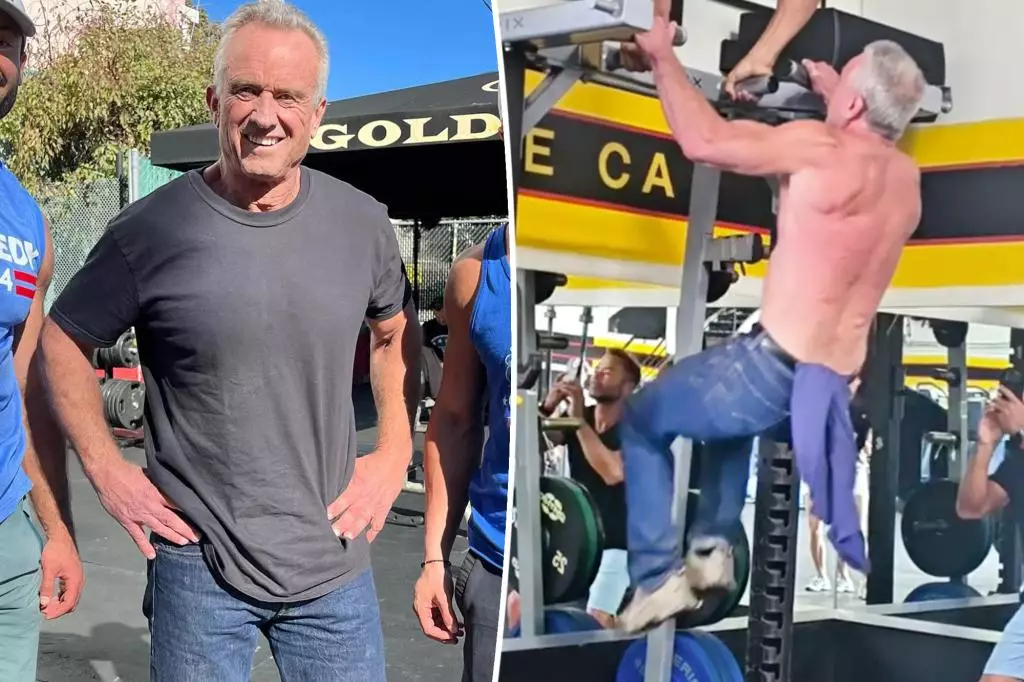In a world where sportswear has become synonymous with fitness culture, images of Robert F. Kennedy Jr. sweating it out in tight jeans and hiking boots at the luxurious Equinox Hudson Yards gym starkly contrast conventional workout attire. The 70-year-old political figure is not one to blend in with the crowd; his unique choice of clothing has certainly turned heads, particularly among younger gym-goers who may not recognize him. Observers noted that his attire gave off an unexpected impression – likening him to a “construction worker.” This cocktail of fitness and fashion—or lack thereof—raises questions about identity, public perception, and the sometimes amusing intersection of politics and personal branding.
Kennedy’s gym sessions have been described as rigorous, with reports indicating that he engages in heavy weight lifting and treadmill exercises—a testament to his fitness commitment. However, the combination of his fitness regime and unconventional attire has led to some lighthearted confusion among his fellow gym members. An insider’s remark about the bemused reactions of onlookers emphasizes how unpredictable celebrity encounters can be, especially when they appear in contexts that deviate from their public persona. The curious experience of watching a notable political scion don boots while exercising might challenge traditional notions of fitness icons, who are often glamorized and polished.
Interestingly, the disconnect between Kennedy’s appearance and his identity as a political figure is amplified by the rising trend of recognition based on looks alone. Many younger individuals at the gym seemed unaware of Kennedy’s lineage or his recent political maneuverings, leading to moments of pure curiosity and disbelief. This raises an intriguing discussion surrounding the nature of celebrity and recognition in contemporary culture. As public figures increasingly tread the fine line between personal and public lives, it becomes evident that appearances can be both deceptive and enlightening.
Kennedy’s public life, particularly his recent endeavors amid a politically charged environment, paint a multifaceted image of a man balancing fitness, health aspirations, and political significance. Recent allegations of personal escapades, including a purported “sexting” affair with a journalist, have complicated his public persona. As he transitions into a potential leadership role in the Department of Health and Human Services, one wonders how this blend of public scrutiny and personal behavior will shape his political legacy.
Robert F. Kennedy Jr.’s fitness journey encapsulates a microcosm of the broader dialogue about identity and recognition in our society. As he pushes the boundaries of typical gym attire, he mirrors the complexities of navigating fame, fitness, and political responsibility. The reactions to his unconventional appearance serve as a reminder that public figures are often subject to the same rules of perception and expectation as the rest of us, albeit with a few more press cameras aimed in their direction. The intriguing, often humorous absurdity of Kennedy’s workout gear invites us to reconsider our own perceptions of fitness, identity, and the remarkable, occasionally absurd, world of celebrity culture.

